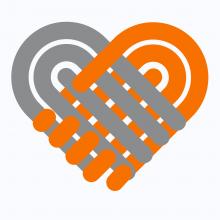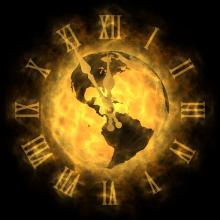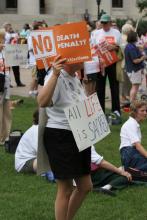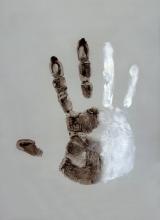Hearts & Minds

IN THE PAST 20 years, the world has witnessed the death of social contracts. We have seen a significant breakdown in trust between citizens, their economies, and their governments. In our own country, we can point to years of data painting a bleak picture of the confidence Americans have in any of our traditional institutions.
Former assumptions and shared notions about fairness, agreements, reciprocity, social values, and expected futures have all but disappeared. The collapse of financial structures and the economic crisis that followed not only caused instability, insecurity, and human pain; they have also produced a growing doubt and basic distrust in the way the system functions and how decisions are made.
This year, at the World Economic Forum in Davos, Switzerland, we looked to the future and asked, "what now?" At a key session—"The Moral Economy: From Social Contract to Social Covenant"—a document was announced that kicks off a year-long global conversation about a new "social covenant" between citizens, governments, and businesses.
It is really a call for worldwide discussion about what values are needed to address the many difficult challenges the world is now facing. Inequality, austerity, retrenchment, maldistribution, conflicts over resources, and extreme poverty all raise questions about our values.

I RECENTLY FINISHED a new book, which we launch on April 1, the day after Easter. The beginning of the Easter season is a liturgically appropriate moment for the introduction of a hopeful book in what many feel is a hopeless time.
I wanted to tell you, our faithful magazine readers, why I wrote this book, and why I called it On God's Side: What Religion Forgets and Politics Hasn't Learned About Serving the Common Good.
This is not just another book for me. I wrote it during a three-month sabbatical that started in a monastery overlooking the Pacific Ocean. Every day started before sunrise with prayers, walks, yoga, and exercise, followed by writing the rest of the day. My other discipline was not to write or comment publicly on the news. I watched the nation's political discourse each night after a day of writing and found it more depressing than ever. It was an election year.
The resulting book is not about politics in the narrow sense, but about how to engage our personal and public lives with an ancient but timely idea and practice—the common good—that has long and deep historical roots across many religious faiths and secular notions of democracy. I sought to explore the biblical and theological roots of the idea, and then apply it to the most basic questions of economic trust, the role of government, civility, renewing democracy, globalization, conflict resolution in a violent world, and, of course, what our faith can contribute to the common good with the world as our parish. Most compelling, I found Jesus' call to love our neighbors to be the gospel foundation for serving the common good, and the excerpt in this issue, "A Gospel for the Common Good" (page 16), makes the case for that.
For Christians, the book explores a fundamental question: Why did Jesus come, and what do the gospel and the mission of the church really entail? The book's message is that when people of faith actually say and do the things their faith stands for, two things happen: at first other people are surprised, and then they are attracted. It examines both inspirations and practices for how we can respond to the growing hunger for a better life together and find common ground for the common good, especially in relation to those who are the most vulnerable.

A RECENT RETREAT of evangelical environmentalists raised this theological question: Should we have expected most people in the developed world to hear the scientific evidence proving the great dangers of climate change and then decide to quickly change themselves—their view of the world, their lifestyles and politics—and to withdraw their support from the fossil fuel economy that is threatening the planet and its people?
Those of us gathered at the retreat didn't think so. We human beings just aren't that smart, wise, good, or unselfish. It's more human to deny the evidence, attack the messengers, delay the response, and just hope everything works out. That's what many have done. And since our political system is even more dysfunctional than most of the people it represents—and is bought and paid for by the gas and oil interests that control the economy—the chances are low for courageous and far-sighted leadership.
So what kind of wake-up call will it take to reduce the carbon emissions we humans create, which are warming the earth's temperature and endangering our future in increasingly dramatic ways? Perhaps it will take disruption and devastation—which is becoming the "new normal." So-called once-in-a-lifetime storms are now becoming frequent, with Superstorm Sandy only the most recent example.
Sandy seemed to get people's attention in a way we haven't seen since the 2010 BP oil spill in the Gulf. It came in a year when the lower 48 states suffered the warmest temperatures and most disruptive weather patterns since such records have been kept. We're already spending billions in emergency aid for the victims of hurricanes and weather disasters; those numbers will only increase. In addition to Sandy, we had 10 other billion-dollar weather disasters in 2012, including Hurricane Isaac and terrible tornadoes across the Midwest and Great Plains.

WILL THE MASSACRE at Sandy Hook Elementary School touch the nation’s soul or just make headlines for a short time? I think that will be up to us who are parents—to respond as parents.
The brutal shooting of 20 6- and 7-year-old schoolchildren in their own classrooms touches all of us, and as the father of two young boys I’m especially struck by the way it touches parents: from the heartbreak of the parents in Newtown to the tears in the eyes of Barack Obama as he responded—not just as the president but also as the father of two daughters—to the faces of the first responders and reporters who are parents. I have felt the pain and seen the look on the face of every parent I have talked with since this horrendous event occurred. Virtually every mother and father in America has turned their grieving gaze on their own children, realizing how easily this could have happened to them.
The day after the Connecticut massacre, my wife, Joy, and I went to our son Jack’s basketball game. The kids on the court were the same ages as the children who were killed. I kept looking at them one by one, feeling how fragile their lives are.
Our first response to what happened in Newtown must be toward our own children: To be so thankful for the gift and grace they are to us. To be ever more conscious of them and what they need from us. To honor the grief of those mothers and fathers in Connecticut who have so painfully lost their children, we must love and attend to ours in an even deeper way.

I AM AGAINST the death penalty in principle. The deliberate killing of prisoners does not demonstrate our society's respect for life, which we are trying to teach—especially to those who violate it. We simply should not kill to show we are against killing. It's also easy to make a, yes, fatal mistake, as alarming DNA testing has demonstrated, revealing some death row inmates to be innocent. In addition, the death penalty is clearly biased against poorer people, who cannot afford adequate legal representation, and is outrageously disproportionate along racial lines. The facts are that few white-collar killers sit on death row, and fewer are ever executed. And there is no evidence that capital punishment deters murder; the data just doesn't show that.
At a retreat I attended a couple of years ago, conservative activist Richard Viguerie approached me and said, "Jim, let's do something together to really shake up politics." Viguerie had become a friend, so I asked him what that might be. "I am a Catholic," Viguerie said. "I am against the death penalty, and I think it's time for conservatives and liberals who agree on that to begin to work together." I was fascinated at the thought of unlikely partners helping to accomplish that together. So we have had several dinner meetings over the last two years with both conservative and liberal leaders—mostly people of faith—to discuss the issue.
Here are some basic facts. There have been 1,312 executions since 1976, when the death penalty was reinstated following a 10-year moratorium. There were 43 prisoners killed in 2011, and 35 so far in 2012. As of April 2012, there were 3,170 people on death row. Forty-two percent are black, 43 percent are white, and 12 percent are Latino. Thirty-three states have the death penalty; 17 have abolished it and several have abolition legislation pending. Since 1973, 141 people have been exonerated and set free from death sentences because of new evidence—people who shouldn't have even been prisoners and were almost killed by the state due to false or faulty evidence. Eighteen of them were released because of DNA evidence. Who knows how many people have been executed unjustly?
I’VE ALWAYS LOOKED forward to Advent. It’s a time each year of expectant hope—the hope brought by the coming of a child, born in an animal stall in Bethlehem, who would change everything. It is the time of year when I am reminded again of the choice we always have between cynicism and hope. That’s ultimately a spiritual choice, and Advent is a formative season that nurtures the choice to hope, which can guide our decisions and actions.
This fall, Sojourners launched a new project called Emerging Voices, and it’s one of the most hopeful initiatives I have been involved with in a long time. It aims to mentor, develop, and promote the most dynamic up-and-coming communicators—speakers, preachers, and teachers—who are called to lead and publicly articulate the biblical call to social justice.
The vision for this project is exciting and something to be celebrated. It also calls to mind a critical observation: Our world often wants saviors, not prophets; new messiahs, not leaders. We want heroes with superhuman strength who save the day, not mere mortals who speak the truths we typically don’t want to hear. Even the modern-day giants of social justice—Dr. Martin Luther King Jr., Dorothy Day, and Mahatma Gandhi, for example—were at best prophets, but never saviors.
It’s easy to slip into the mentality that one person, one voice, will rise up in a generation, and that she or he will change the world as we know it. Dr. King spoke of this temptation as the “drum major instinct.” It is the basic desire of humans to lead the charge and, ultimately, reap the recognition—or, at the very least, to place our confidence in a single human being.

RACE WAS THE issue that changed the direction of my life. Growing up in Detroit in the early 1960s, the realities of white racism upended the world and church that I lived in.
What I saw and heard as a teenager painfully showed me that something was terribly wrong with my country and my religion. Trying to confront it got me virtually kicked out of my childhood church, led me into the civil rights and student movements, introduced me to the black churches, and set me on a path that would eventually bring me back to the good news of the gospel of Jesus Christ—which calls for social, racial, and economic justice. The historical tragedy, the “original sin,” of white racism in the United States is still a fundamental starting point to how I see the world.
So when I look at this election involving the first African-American president in U.S. history, I can’t help but go back to the critical questions of race. Let me be clear: To disagree with policies of President Obama and his administration is not racist. Agreements and disagreements are just that, and should not be correlated to race. And regardless of how we vote, we should all appreciate the fact that the role model of the Obama family living in the White House has convinced millions of young black men and women, and youth of all races—many for the first time—that they are really a part of this country and that they too could someday be president of the United States.
But I am concerned about how race has again distorted our politics. I want to speak directly to what those racial politics are and how people of faith should call them out and oppose them, no matter how we vote or what we think of the policies of the president.

THIS SUMMER, in a historic development, nearly 150 evangelical leaders signed an “Evangelical Statement of Principles for Immigration Reform.” Signers came from across the spectrum of evangelicalism, from leading Latino evangelical organizations to pastors Max Lucado, Bill Hybels, Joel Hunter, and Jim Daly, president of Focus on the Family.
No, that isn’t a typo. Sojourners stood side by side with Focus on the Family to draw attention to the plight of millions who have been caught up in a broken system. It was exciting to see a unity across the traditional political spectrum that rarely happens in Washington.
Make no mistake: There are still big gaps in theology and politics among those in the group. But rather than politics, we focused on the things we agreed were fundamental moral issues and biblical imperatives. Instead of ideology, we came together because of morality and common sense.
Big things don’t change in Washington first; they change in the nation’s capital last. You’d think that with all the lobbyists on K Street and the billions of dollars being spent, Washington must be the country’s most important place. But this is the place where things don’t change, where politics maintains the status quo and the special interests maintain their own interests. Both Republicans and Democrats are more concerned with their political bases and getting re-elected than with the people and families whose lives are being crushed.

I have been a Little League baseball coach for both of my sons’ teams for many years. And I’ve learned that baseball can teach us life lessons.
Just a few weeks ago, my 9-year-old’s team was down 5-0, and we had already lost our first two games. It didn’t look good. But all of a sudden, our bats came alive; all our practice and preparation suddenly showed itself. Best of all, our rally started in the bottom half of the order, with our weakest hitters. Two kids got on with walks, and our least experienced player came to the plate. With international parents, he had never played baseball before, and you could tell he didn’t have a clue. But somehow he hit the ball, and it went into the outfield. Our first two runs scored, and he ended up on second base. Being from a British Commonwealth culture, he began to walk over to the shortstop and second baseman and shake their hands! “Stefan,” I shouted. “You have to stay on the base!” “Oh,” he said. “I’ve never been here before.”
Inspired, other kids who had never got hits before also got them now. Then the best hitters started to hit, and we came back to win 11 to 6. In a long team meeting afterward, the kids couldn’t stop telling each other what they had learned. “We didn’t give up, and we came back!” “Our rally started with the bottom of the order.” “Sometimes you get what you need from unexpected places.” “We all just kept cheering for each other.” “Everybody helped us win today.” Finally, our star player said, “This just goes to show you: You can’t ever give up on hope. We always have to keep on hoping no matter what.”
This is central to our vocation in the churches: to offer unexpected hope, because our mission is to the kingdom of God—“thy kingdom come, thy will be done, on earth as it is in heaven.” That is what we pray. And while the kingdom of God was the central message of Jesus and the New Testament, it has faded as ours. Finding salvation to heaven is part of the message, getting closer to God is part of the message, but the heart of the message of Jesus was a new order breaking into history—changing everything about the world, including us.
Politics is a true American idol, and the 2012 election will dramatically demonstrate that reality.
People of faith should never worship at the altar of politics, because we worship God; the kingdom of God is never the same as the kingdoms of politics. Our worship of God should shape our engagement with politics. When politics shapes our religion, it distorts our true worship.
Rather than becoming the chaplains or enablers of political idolatry, the faith community should confront it. The idols of politics are many: the idol of money over democracy, the idol of celebrity over leadership, the idol of individualism over community, the idol of ideology over civility, and the idol of winning over governing. Both sides take a problem and do two things: make us afraid of it, and then blame it on the other side. What they don’t do is work together to solve our problems, finding solutions for the common good.
What caused me to rethink these questions of faith and politics was my encounter earlier this year with a lion in a monastic community overlooking the Pacific Ocean at the beginning of my sabbatical. Entering into solitude and silence with monks, punctuated only by Vigils, Lauds, Eucharist, and Vespers, can alter a person’s perspective. In the monastery’s guest kitchen library, I spotted the Chronicles of Narnia, by C.S. Lewis, and decided to reread them. Aslan the lion is the creator and leader of Narnia, the true and good king, and the stories’ Christ figure. Because I was beginning to write a book about the common good, with Jesus as the inspiration for it, I was again drawn to Aslan.
The war in Iraq was fundamentally a war of choice, and it was the wrong choice.
Evangelicals run the political gamut from conservative and moderate to progressive and decidedly liberal. To suggest that most evangelicals reside on the far right is simply not true.
It's a consistent storyline in the media, involving powerful men in politics, sports, business, and religion: Men behave with utter disregard for the dignity and humanity of women -- using and abusing them at will, and acting as if they believe that they are entitled to do so.
In this fallen world we are often faced with imperfect choices in response to clear evil.
Tough choices are now upon us -- but they must be smart, courageous, and compassionate.
Though the fast ended on Easter, it helped to spark a broad and united movement for a moral budget.
The leadership of both our countries has preferred stability to democracy for a long time.